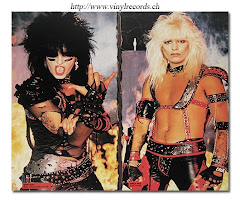Monday, September 21, 2009
Jane's Blog # 3
The first article I was intrigued with was Audre Lorde’s “Age, Race, Class, and Sex”. I was moved by her powerful words and I found her article enlightening, which allowed me to better acknowledge the struggles of a black lesbian feminist. The existence of the “mythical norm” that’s prevalent within our society creates a social hierarchy that distinguishes superiority and inferiority among individuals. Lorde noted that sexism, racism, ageism, heterosexism, elitism, and classism evidently coexist within our society;“ it’s not those differences between us (race, age, and sex) that are separating us. It’s our refusal to recognize those differences, and to examine the distortions which result from our misnaming them and their effects upon human behavior and expectations” (246). She highlights the dire need for women to revolutionize our “internalized patterns of oppressions”, and learn to acknowledge and embrace the differences that women of all ethnicities carry in order to collaborate and reform the patriarchal power systems. It was interesting to see how the perpetuating existence of patriarchy among the African American society that Lorde emphasized on is mirrored in “Boyz in the Hood” and how only the male characters are accentuated.
The second article, “Theorizing Difference from Multiracial Feminism, Zinn and Dill praises that multiracial feminism embraces the interconnectedness of the various race, class, gender, and sexuality of individuals to bring forth a new analytical framework that may eliminate the notion of gender associating to other forms of dominations. It was interesting how Zinn and Dill pointed out the racial dominance of whites and blacks existed among some of the feminists; “Perspective can be hampered by a biracial model in which only African Americans and Whites are seen as racial categories and all other groups are viewed through the prism of cultural difference” (21). It was refreshing to read about a revolutionary feminism that recognizes the importance to fully understand both women and men in all parts of the society.
In regards to Professor Messner’s question about “situated knowledge”, I do think it is an impediment for many individuals to see the world clearly. Undoubtedly, we constantly experience various situations and scaffold our perceptions through them. One’s place in social class may broaden his or her vision of the world while as another’s may be obscured through his or her social rank Additionally, not everybody is open-minded, and some people awfully place bias on certain groups of individuals or objects, which their awareness would only be altered through an actual enlightening event.
The second article, “Theorizing Difference from Multiracial Feminism, Zinn and Dill praises that multiracial feminism embraces the interconnectedness of the various race, class, gender, and sexuality of individuals to bring forth a new analytical framework that may eliminate the notion of gender associating to other forms of dominations. It was interesting how Zinn and Dill pointed out the racial dominance of whites and blacks existed among some of the feminists; “Perspective can be hampered by a biracial model in which only African Americans and Whites are seen as racial categories and all other groups are viewed through the prism of cultural difference” (21). It was refreshing to read about a revolutionary feminism that recognizes the importance to fully understand both women and men in all parts of the society.
In regards to Professor Messner’s question about “situated knowledge”, I do think it is an impediment for many individuals to see the world clearly. Undoubtedly, we constantly experience various situations and scaffold our perceptions through them. One’s place in social class may broaden his or her vision of the world while as another’s may be obscured through his or her social rank Additionally, not everybody is open-minded, and some people awfully place bias on certain groups of individuals or objects, which their awareness would only be altered through an actual enlightening event.
Subscribe to:
Post Comments (Atom)


No comments:
Post a Comment
Note: Only a member of this blog may post a comment.